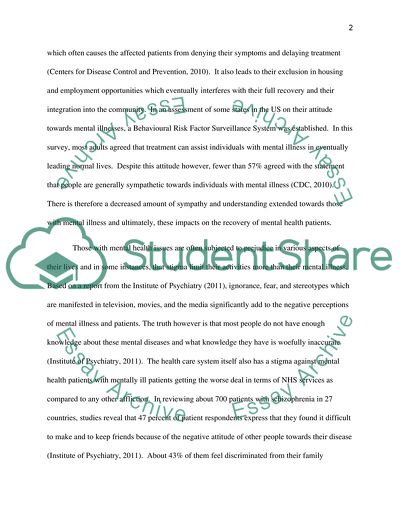Cite this document
(Mental Health and Disability Research Paper Example | Topics and Well Written Essays - 2750 words, n.d.)
Mental Health and Disability Research Paper Example | Topics and Well Written Essays - 2750 words. Retrieved from https://studentshare.org/health-sciences-medicine/1757550-social-work-mental-health-and-disability
Mental Health and Disability Research Paper Example | Topics and Well Written Essays - 2750 words. Retrieved from https://studentshare.org/health-sciences-medicine/1757550-social-work-mental-health-and-disability
(Mental Health and Disability Research Paper Example | Topics and Well Written Essays - 2750 Words)
Mental Health and Disability Research Paper Example | Topics and Well Written Essays - 2750 Words. https://studentshare.org/health-sciences-medicine/1757550-social-work-mental-health-and-disability.
Mental Health and Disability Research Paper Example | Topics and Well Written Essays - 2750 Words. https://studentshare.org/health-sciences-medicine/1757550-social-work-mental-health-and-disability.
“Mental Health and Disability Research Paper Example | Topics and Well Written Essays - 2750 Words”, n.d. https://studentshare.org/health-sciences-medicine/1757550-social-work-mental-health-and-disability.


